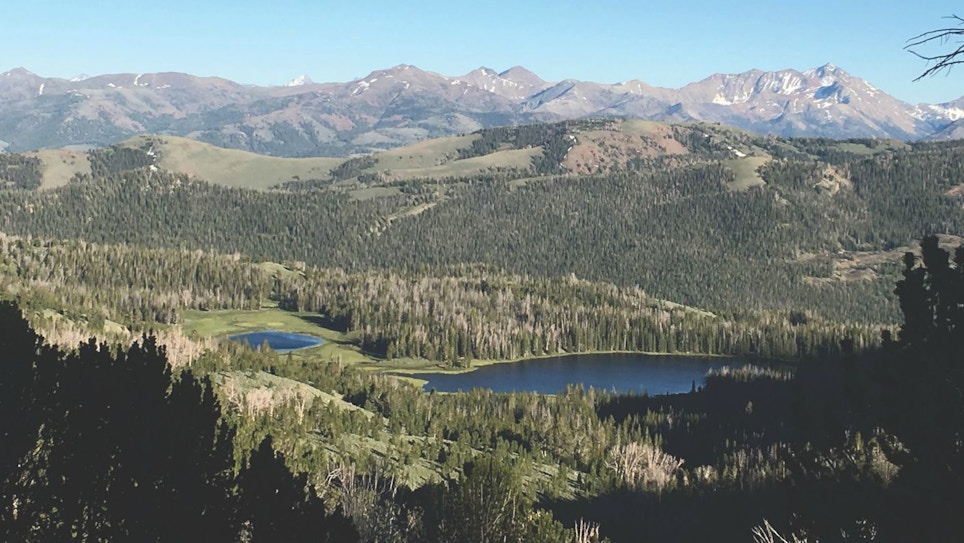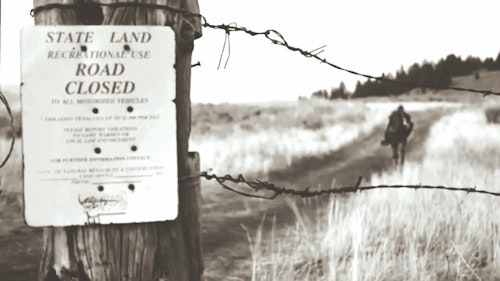Recently in this column, I wrote, “For the bowhunter wishing to head West, there is no greater blessing than that of public land.” This quote comes from deep within my core, and I fully understand how blessed I am to have public land in my home state of Idaho and a few surrounding states in which to roam. In the United States, there are millions of acres of public lands across our great nation. For those of us who don’t have access to private lands to hunt, these public lands are our only chance to get out and enjoy our passion.
The first part of the definition of public land should guarantee that we have these lands to hunt and recreate since we the people, are “in charge” of our government. The second part of the definition above should scare the hell out of not only every hunter, fisherman and trapper in our country, but also every single American. I won’t get political here, but I don’t have a lot of faith in many of our elected officials and their ability to do what is right for its citizens. With a booming population, changing political climates and newer generations having different interests than the outdoors, it is not impossible that the day will come when those in charge will start to sell off our public lands.
Out West
In the western U.S., public land is plentiful, and a growing number of hunters travel from all over the country to hunt the animals that call the West home. There are many reasons for the influx of hunters. Regardless of the reason of its popularity, the trend is here and looks to be here to stay. Like I have talked about often in this column, it has become harder to escape the pressure of other hunters, but it can be done. One thing we must do is remind ourselves that they are all looking for the same opportunity that we are. They aren’t just after your spot(s).
Whitetail Woods
I don’t claim to be a pro in the whitetail woods and know almost nothing about public land whitetail hunting in the Midwest. To find out more, I called Alex Gyllstrom. Alex is a public land whitetail fanatic, and he gave me some insight into the area where he lives in Illinois and surrounding states that he hunts. Alex informed me that some public land parcels are open only to residents of their respective states. Additionally, there are large chunks of land that have thousands of acres open to anyone who wishes to hunt there. Like hunters out West, many hunters don’t want the “word” getting out that there are places nonresidents can hunt, though they do exist.
Greed Is Dangerous
Hunters are a funny group. We like reading about hunting, watching hunting on TV and engage in hunting activities on our phones. Still, individually, we usually dislike other hunters that encroach into “our areas.” This thinking is natural, and believe me, I am guilty of this myself. I continuously hear on social media, in forums and talking to other hunters, that we need to lock all the nonresidents out.
However, it’s not a good argument. Nonresident license and tag fees make up a substantial portion of most game agencies’ annual budgets, and they couldn’t operate the way they do if we took that away. Another factor is the negative effect it would have on local economies if hunters from afar didn’t spend money in our local economies.
Ethics
Often when talking to older hunters, I hear them talk about the lack of ethics of the new generation of hunters. I was raised that when you see another hunter in an area, you walk over and ask where they are headed and try to formulate a plan with them to stay out of each other’s way, so both parties have a good hunt. Nowadays, I am blown away by how many times I get the “It’s public land, and I will go where I want. Indeed, it is public land, and hunters are free to go and do as they choose, but this mentality is detrimental to our sport. It is only through mutual respect that we go forward with this experiment of public land that has worked so well. We must work together, be respectful and realize we are all after the same thing. If we can do this, we will ensure that these public lands are open for generations to come.
A Challenge
I challenge you to entertain another point. As it is now, there are hunters from all reaches of the country who have a stake in public lands. If you take away a hunter’s opportunity to hunt in any location, they lose interest in keeping it open. As opposed to the current situation where everyone has the opportunity, so they have a reason to fight for your and their hunting areas. At the risk of sounding cliché, our strength is in numbers, and the more of us we have beating the public land drum, the better off we are.
To clarify, I do believe that the residents of each state should have more opportunity than nonresidents. I think it’s great that there is an area near Alex’s home that is open only to residents of Illinois for bowhunting. I am equally happy that there is another area near there where anyone who wants to pursue an Illinois giant can hunt on land owned by all of us. The same can be said of areas out West where I spend my time chasing elk, mule deer and more. I am thrilled that I get the chance to hunt every single year as a resident of Idaho. I also love that every year thousands of hunters get to come west and hunt and experience the mountains. Game agencies are scrambling to keep up with the changing times, but I am confident they will find a balance that keeps all hunters happy and invested in the future of these public places.







